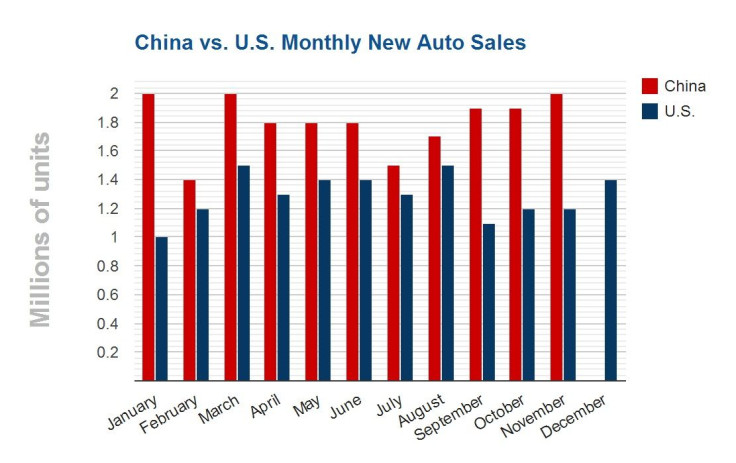Chinese Automakers Eye Thailand And Other Emerging Markets As Domestic Competition Heats Up

China has plans to export its domestically manufactured cars to Thailand, as competition at home forces Chinese automakers to shift focus to emerging markets.
Many western automakers either assemble in China or have suppliers there. Only half of the vehicles made in China carry Chinese brand names, but these are much less well-known abroad compared with their foreign counterparts, as only 5 percent of total Chinese car production is exported, the Bangkok Post reported on Monday.
However, the Chinese auto industry has slowed considerably since 2010, growing just around 3 percent annually, far less than the 20 percent per year growth in the 2000s. As competition in the increasingly sluggish domestic market heats up, Chinese auto makers are forced to go global, especially to emerging markets in Africa, Latin America and Southeast Asia.
Geely, a passenger car company that bought Volvo in 2010, had great success by focusing on exports to Russia, Iraq and Saudi Arabia, maintaining a 24 percent annual growth in revenue from 2009 to 2012.
Thailand, in particular, will likely become a key destination for both exports and assembly plants for Chinese carmakers. Last year, SAIC Motor, the largest automaker in China, announced a joint venture with Thailand’s CP Group to assemble cars in Thailand under the MG brand, which is a now Chinese-owned British brand. Production is slated to start this year with 50,000 vehicles. Another Chinese company, Sunlong, already has the largest annual market share in sales of buses in Thailand, according to the Bangkok Post.
But to succeed, Chinese carmakers need to combat consumers’ negative perception of the quality of Chinese cars. Thai buyers are more demanding compared to consumers from other emerging markets, and cars under Chinese brands have struggled to gain a foothold there previously.
© Copyright IBTimes 2024. All rights reserved.





















